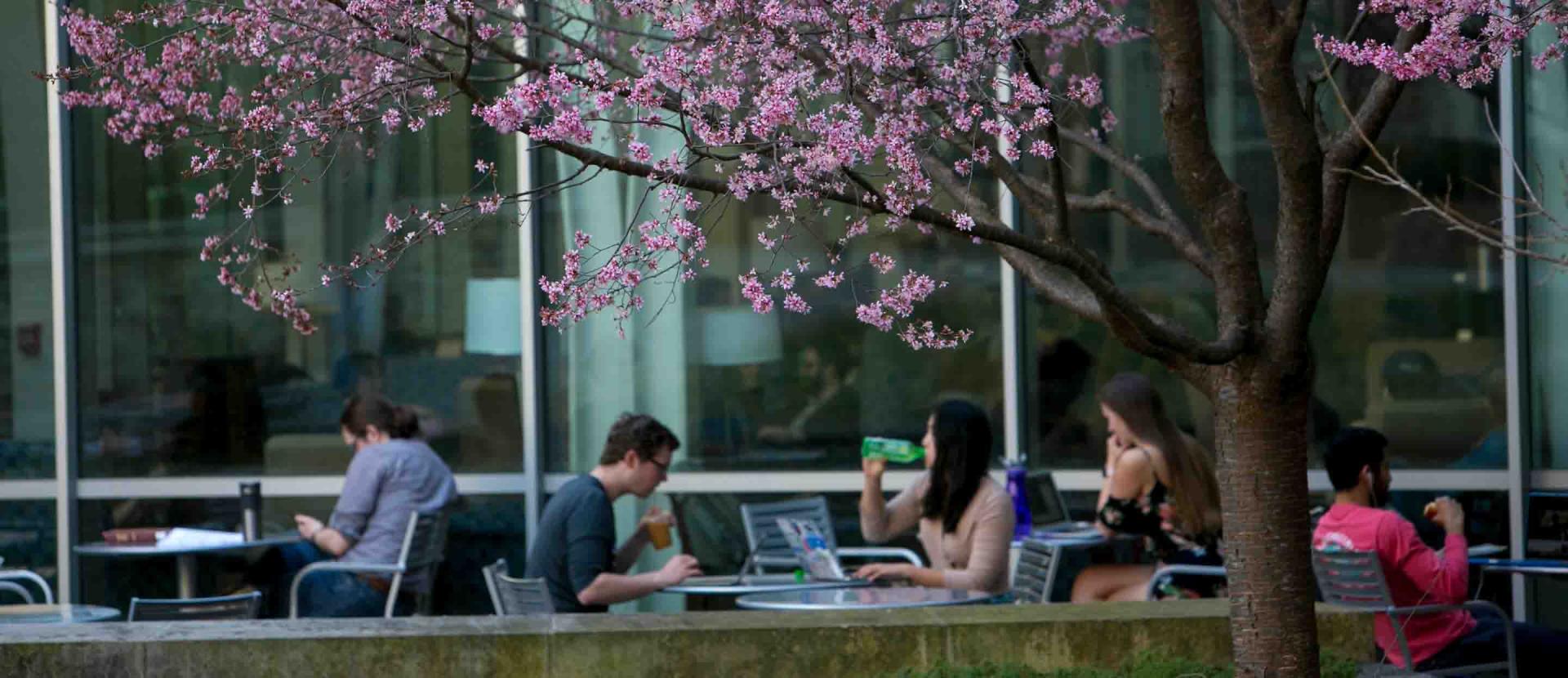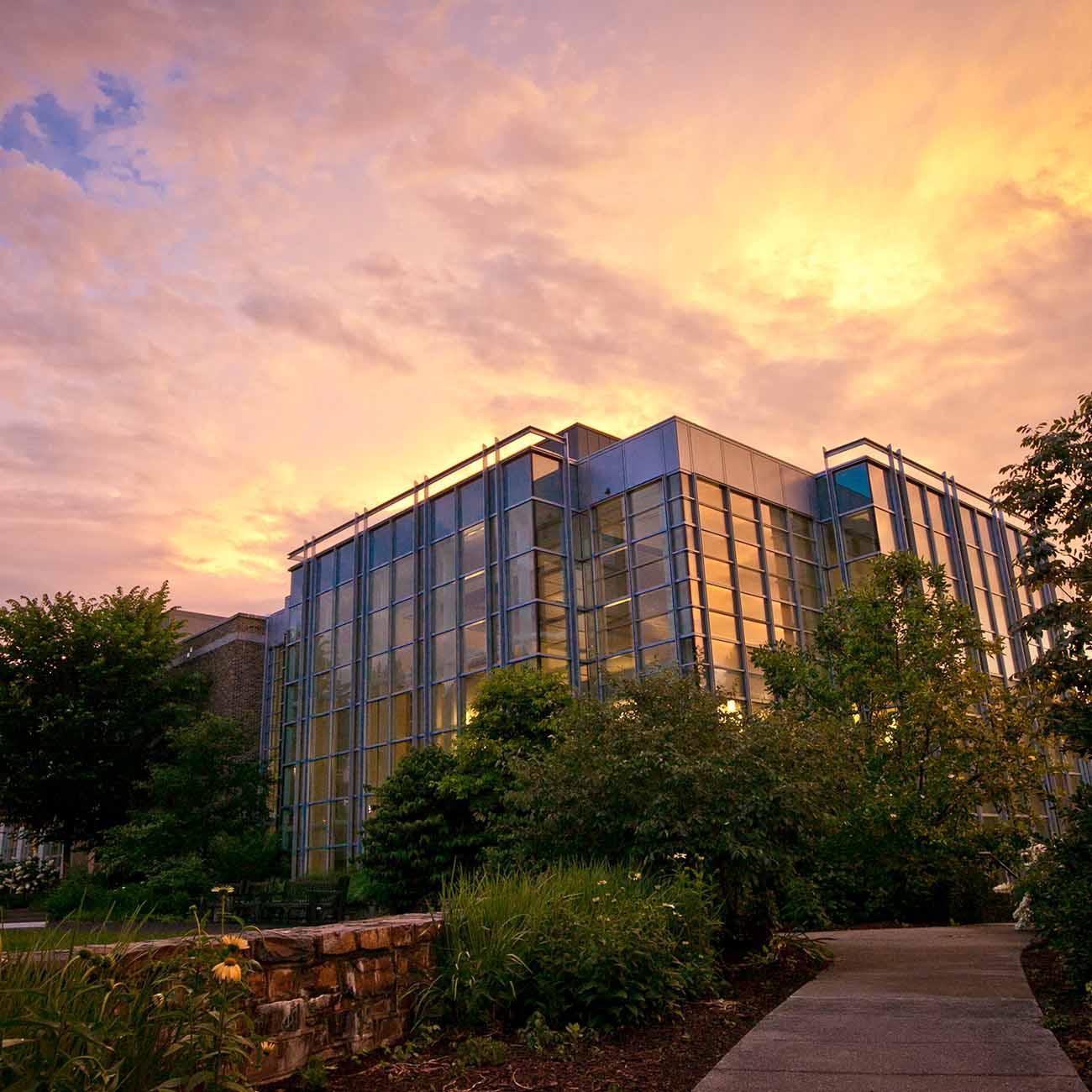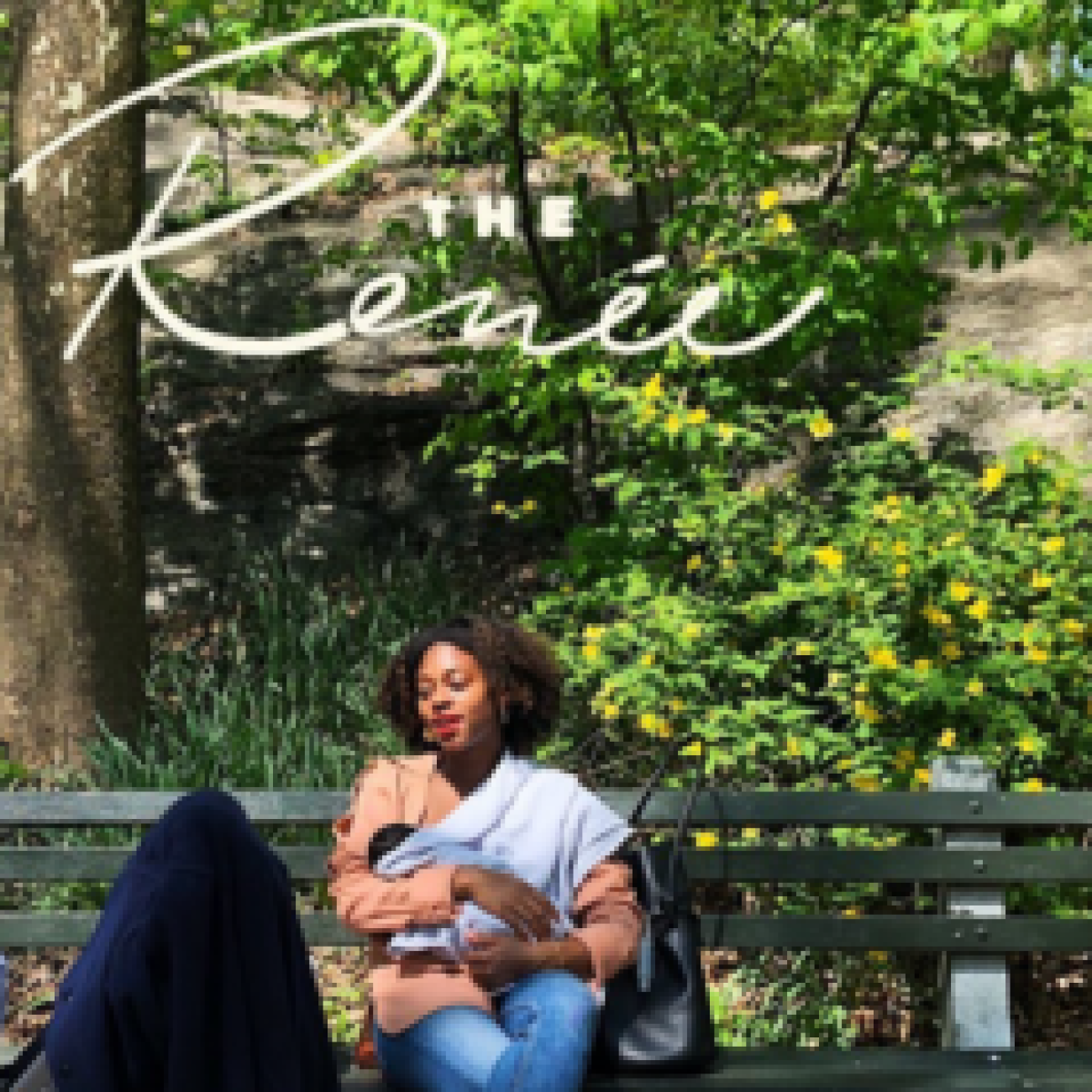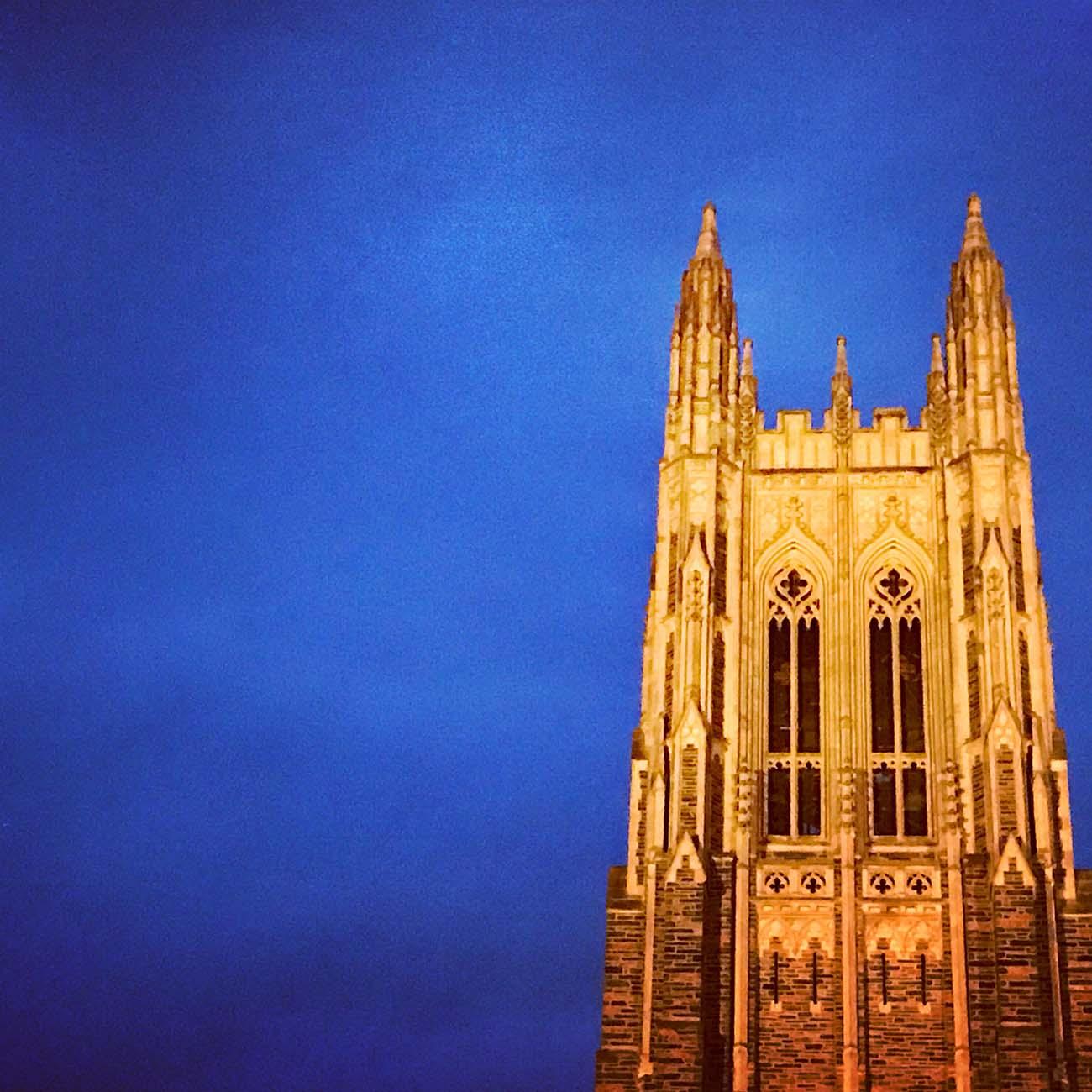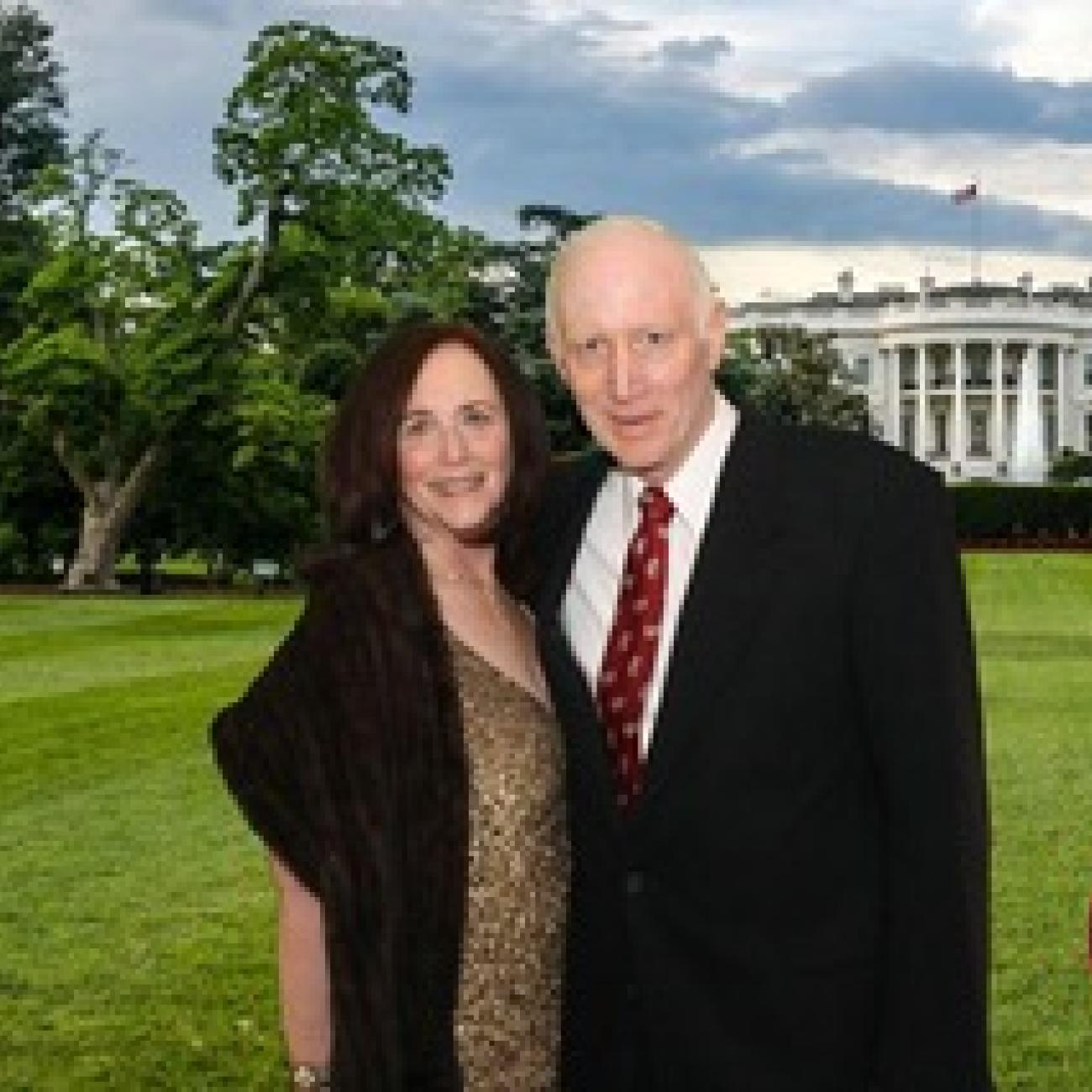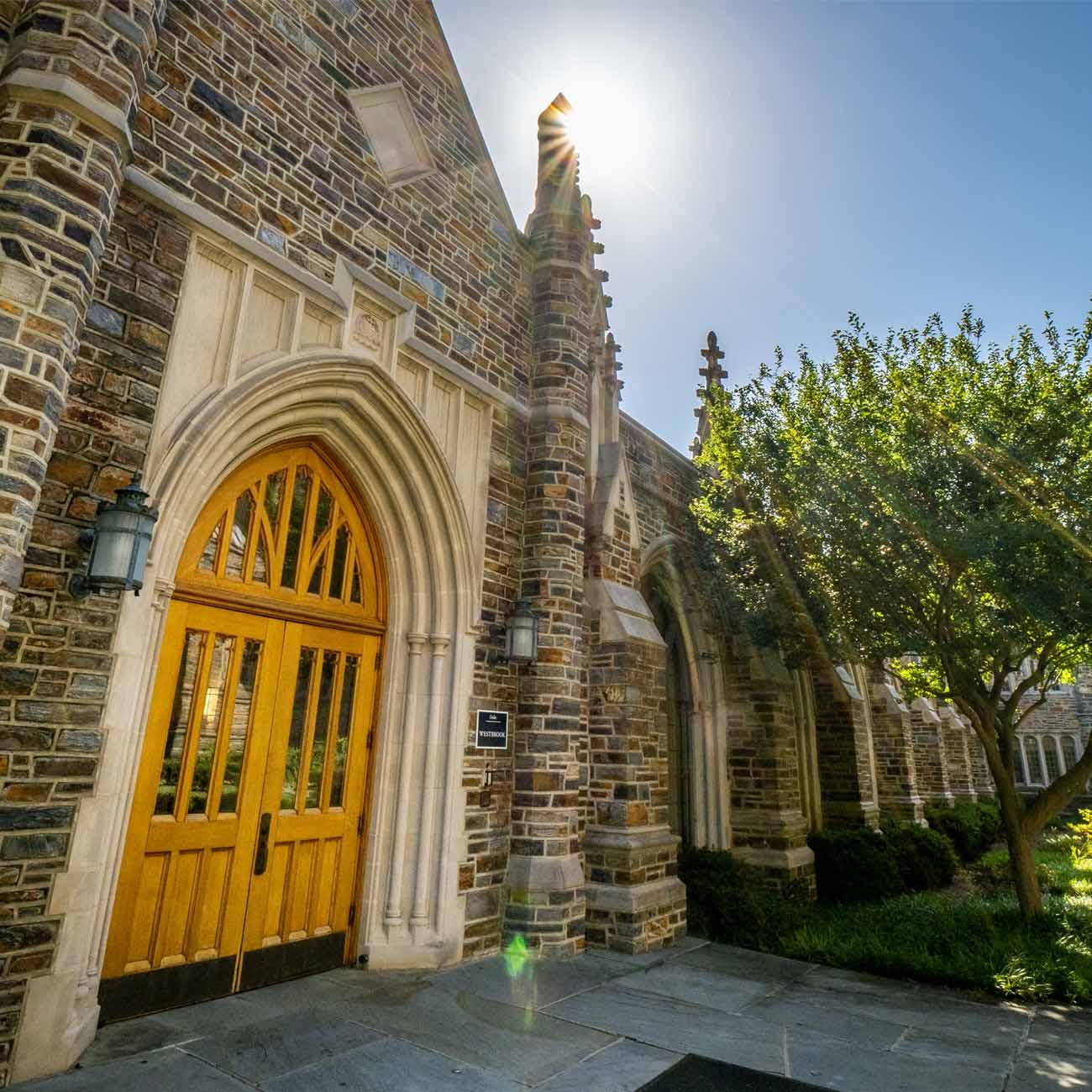Dean's Research Awards for Master's Students 2021-22
For the 2021-2022 academic year, the Duke Graduate school awarded 43 Dean's Research Awards for Master's Students. The fellowship provides up to $1,000 to fund the purchase of materials and supplies to support research relevant to a master’s student’s degree completion or research/conference travel. Here is a look at some of the recipients and their research.
LAURA ASHERMAN
Experimental and Documentary Arts
I will use this grant to cover travel fees and equipment for a documentary featuring a queer, North Carolina-based couple as they train to compete in the World Championship for Burhurt, a modern take on medieval armored combat fighting.
YASAMAN BAGHBAN
Experimental and Documentary Arts
I am a first-year MFA EDA (Experimental and Documentary Arts) student. As a Middle Eastern documentary filmmaker woman born and grew up in Iran after the 1979 revolution, social, cultural, and political issues are inseparable from my life. Like any artist, I believe in change. The change with the result of liberty. Yes, a huge dream, but anyone with any small changes can help make this dream happen, especially women. After hundreds of years of suppression, now is the time to unite and make the dreams come true. I am interested in immigration, anti-war, and post-colonial concepts. The duality of death/life and memory and archive are among my interests, and I applied these concepts to my photography projects about cemeteries. My recent works were based on archival materials. My next documentary film is about immigration. How you struggle with identity as an immigrant, and this becomes your everyday life. Essay documentaries are my favorite ones. The directors use their personal stories, and sometimes they expand them. Individualizing a universal concept and vice versa. I will use this award for part of my final project, which will be a hybrid-essay film.
SONALI BISWAS
Population Health Sciences
Transgender youth are at risk of experiencing gender dysphoria, defined as the psychological distress caused by dissonance between one's sex assigned at birth and one's gender identity. Among the many social, political, and financial barriers to accessing patient-centered gender-affirming care is the lack of provider awareness of the perspectives and needs of this population. Through qualitative analyses of interviews with transgender youth, my project seeks to characterize how specific physical features contribute to gender dysphoria, as well as how this population perceives medical interventions that would address these features, including hormonal therapy and surgery. As a Master's student in the Population Health Sciences program and a medical student aspiring to be a gender-affirming surgeon, I am pursuing this project as part of the Transgender Health Measurement group with Dr. Deanna Adkins and Dr. Bryce Reeve. Funds generously provided by the Graduate School will contribute to reviewing our results with focus groups and developing an online tool for patient and provider education.
MEYRA ÇOBAN
Bioethics & Science Policy
I am interested in ethical questions surrounding disability and mental illness. In one of my current projects, I investigate the practice of sharing clinical notes with patients. I focus on the ethical opportunities and limitations of sharing these notes with patients who receive mental health care. With the help of the Dean's Research Award for Master's students, I will attend the annual conference of the Association for Practical and Professional Ethics in Cincinnati, Ohio. At this conference, I will present my project and seek feedback from an interdisciplinary audience. I am looking forward to discussing my work with others for two reasons: It will help me improve the argument of my paper, and it will help me communicate my argument in a way that makes sense for people from different backgrounds, including those who relate to mental illness primarily through lived experience.
NICHOLAS BRUNO
Slavic and Eurasian Studies
My research focuses on re-thinking US diplomacy towards Russia, especially so in terms of US leadership of NATO and US overall grand strategy vis-a-vis Russia. The dominating attitude toward Russia over the past 76 years has been to regard Russia as an adversary and competitor. While this understanding may have been well placed during the years of the Cold War, the US missed, and continues to miss, opportunities to re-make the US-Russia relationship since the fall of the Soviet Union in 1991. My research will further analyze the US strategy toward Russian policy given the perceived threats and how to re-orient US policy to Russia toward better relations, partnership, and, hopefully, full-fledgedallies. Through the Deans's Research Award, I will travel to Tartu, Estonia to attend the 6th Annual Conference on Russia hosted by the Baltic Defense College. This year's conference will attempt to draw a clearer picture of Russia's means of national power, assess the means strengths and limitations, and draw conclusions in how Russia will use those means to advance their international policy. In order to begin rethinking diplomacy, policy, and relations, I must fully understand where the west and east see themselves strategically. I am grateful for the opportunity to attend this conference to advance my research and better understand NATO/US and Russian goals in securing national interests domestically and internationally through the Deans Research Award.
ZIXIE LIANG
Biomedical Engineering
I am a second-year M.S. student with a thesis in the Biomedical Engineering Department. My research project at the Truskey Lab aims to test the drug effects of various senolytics and senomorphics on an Aging Tissue Engineered Blood Vessel (TEBV) model mimicking atherosclerosis conditions induced by hydrogen peroxide senescence. It is hypothesized that this TEBV model can be used as a better model for senescence reduction drug screening with a lower cost, and it is expected to see reduced vascular dysfunction with less monocyte adhesion and foam cell formation in the drug-treated TEBV. With the support of the Dean's Research Award, I would be able to continue my experiment in 3D TEBV model with selected drugs and analyze the results with immunofluorescence staining and imaging in the following spring 2022 semester.
YUPEI LIU
Computer Science
My research is focused on Security & Privacy and machine learning in the adversarial setting. I am currently working with Prof. Neil Gong to address the security issues of the machine learning models to make artificial intelligence more trustworthy. We broadly study the potential vulnerabilities of the self-supervised learning models, recommender systems, and neural networks and the corresponding empirical and certified defense mechanisms to secure these models. For example, the "BadEncoder" we recently presented reveals the overlooked security issues from the trojan attacks. I also work at Cyber-Physical System Lab with Prof. Miroslav Pajic to study the security issue of the perception algorithms used by autonomous vehicles. Existing academic results show that the perception algorithms are vulnerable to "black-box spoofing attacks", which can cause severe traffic accidents for autonomous vehicles. Our mission is to analyze this issue and propose defense methods to secure autonomous vehicles. The projects mentioned above have led to several publications in the top-tier conference in the area of computer security. I have planned to use this award to support my recent research on the topic of model extraction attacks. I sincerely thank the donors who made this award possible.
MAHGUL MANSOOR
Global Health
I am working in global mental health research under the mentorship of Dr. Eve Puffer at the Duke Global Health Insitute. COVID-19 related stressors have caused an increase in people experiencing poor mental wellbeing. For my master's thesis, I am looking at the implementation success of a family-strengthening program delivered to families in North Carolina via Zoom. This program, called Coping Together, was adapted from a project conducted in Kenya which was shown to be enjoyable, useful, and feasible in that setting (Puffer et al. 2019). We partnered with Dr. Wanda Boone (Founder of Together for Resilient Youth) and community health workers from T.R.Y to develop, adapt and deliver the program in N.C. In evaluating the implementation success, or how well the adapted program worked, in our local setting, our team conducted qualitative interviews and focus groups of caregivers and youth that participated in the program. I will use the Dean's Research Award for Master's Students to understand the experiences of families within the program and collect feedback on its design, content, and implementation. This award has allowed me to conduct high-quality data analysis and dissemination of this research.
HOPE MEIKLE
Materials Science and Engineering
I am currently working on a collaboration between the Therien and Franklin laboratories to study how to improve materials used in printed electronics. These electronics are made using an aerosol jet printer, which prints thin films of materials (graphene, carbon-nanotubes, etc.) to create flat, flexible electronics. Each component of the device uses a different ink that we are working to optimize for improved performance (conductivity, uniformity, etc). The award was used to fund a trip to Boston to attend the Materials Research Society conference where I presented a poster on my research, specifically focusing on studies done on the dielectric layer.
JEEHAE NAM
Global Health
Sickle cell disease (SCD) is a monogenic disorder that affects an estimated 312,000 annual global births. Seventy-five percent of those births occur in sub-Saharan Africa, where 50-80% of SCD patients die before adulthood. Yet, the bulk of global SCD research primarily focuses on high-income/low-burden countries. In particular, the lack of SCD resources in Uganda has led to misconceptions and undiagnosed/untreated illness, deepening the disparity among underserved populations, and research related to SCD education and perception among youth remains low. My Master's thesis assesses current SCD awareness, knowledge, and perceptions among youth (secondary school students and community youth group members) in Kalangala, Uganda, and uses a qualitative methods approach (e.g. in-depth interviews and focus-group discussions), and arts-based education, such as photovoice. This award will further support my research by funding study personnel and collaborators based in Kalangala until the completion of my thesis. This will allow the team to revisit research activities that were delayed due to restrictions related to COVID-19.
SHANTI NARAYANASAMY
Global Health
My thesis title is "Exploring How Physicians and Medical Students Operationalize Race in Medicine." Racial essentialism is a hallmark of medical student training and medical practice. The curriculum for medical learning takes place both in the classroom and on the wards. Interrogating how race is operationalized in medicine, and the historical origins of scientific racism, have not been a consistent feature of continuing medical education for physicians. This research project aims to understand the values, belief systems, and scientific knowledge that underpin the construct of race and explore how this is related to clinical practice among medical students, residents, fellows, and faculty at Duke. Understanding beliefs on race in medicine is the first step in engaging emerging and current physicians to apply scientifically rigorous approaches to the use of race, and its relationship with genetics, ancestry, disease, society, and the environment. The study will use a mixed-methods study design consisting of a 15-minute survey (quantitative component) and interviews (qualitative component). The research findings will be used to create dedicated programs on race for physicians and medical students at Duke. The funds from the Dean's grant will be used to design a logo or visual representation of the study to encourage participation.
DON NGUYEN
Global Health
My research with Dr. Greg Gray in the Duke One Health Laboratory primarily focuses on pre-pandemic surveillance. We perform a variety of viral screens on human and animal samples, with the hope of detecting viral presence early in the process of spread. The purpose of this work stems from the understanding that zoonotic transmission of diseases from animals to humans typically occurs over the course of a considerable amount of time. Thus, for a virus to become effective at spreading from humans to other humans, it is necessary for that pathogen to have the time to develop and mutate. Therefore, routine tests of samples from high-risk environments will discover viruses early in the transition process. Our goal is to build an international web of protection where periodic screens in different countries can detect these viruses, for the means of safeguarding the world from future pandemics. The current COVID-19 pandemic has displayed to us the importance of viral detection systems and accordingly, this strategy requires sufficient funding and financial support to prosper. My work specifically investigates bioaerosol samples from swine and human-animal workers in Northern Vietnam. This research award will help support the purchasing of the laboratory research supplies necessary for carrying out our tests. While our current efforts are on a smaller scale within Duke, our hope is to expand this network to a larger global scope and truly make a difference in the world.
DEVON KARL OVERSON
Medical Physics
Magnetic resonance imaging (MRI) relies on wired radio-frequency detectors (i.e. RF receive coils) to acquire medical images. In the Truong and Darnell MR Engineering laboratory, my main research endeavor is the development of receive coils that wirelessly transmit image data. This research impacts existing scanner technology by removing wired connections and the accompanying filters, baluns, and cable traps. The wireless coil design is lighter, more maneuverable, and cost-effective, reducing scan setup time and financial burden. The Dean's Research grant has allowed me to access computational resources and equipment for physical system validation. This current focus contributes to developing a high data rate transmission model and pairing MRI wireless data transmission with artifact correcting hardware on the same coil elements.
XINYI PAN
Interdisciplinary Data Science
I am a second-year master's student in Data Science. In addition to being a data science practitioner, I am interested in how to preserve the privacy of individuals in the application of big data and deep learning from an algorithmic perspective. My studies focus primarily on the application of differential privacy, which is a rigorous mathematical definition of privacy. The idea behind differential privacy is that if the impact of any single substitution in the database is sufficiently small, the query results cannot be used to infer any single individual, thus guaranteeing privacy. I believe trustworthy artificial intelligence and privacy-preserving data analysis are critical to building a safe digital world for humanity. I am very thankful for the support that Dean's Research Award has provided me with toward conducting my research.
VANN POWELL
Experimental and Documentary Arts
I am studying American Civil War photography while making contemporary portraits of visitors to historic Civil War battle sites in an attempt to capture something about the formative nature of the American Civil War on the American psyche, especially in these tumultuous times of social strife. I have used and will be using the award to support my work through the purchasing of film and camera equipment.
ASHUTOSH RAMAN
Biomedical Engineering
I am currently exploring the use of fluorescence spectroscopy in a non-contact device for the detection and classification of neoplastic tissue in delicate areas of the body, like the brain. I intend to explore the sensor fusion of devices like this and optical coherence tomography, a novel imaging modality, in order to provide intraoperative, real-time diagnosis and margin delineation assistance for surgeons during high-stakes procedures. The ultimate goal of this research is to create a closed-loop self-guiding surgical ablation tool that senses and ablates tissue according to a smart algorithm, and adjusts for a changing surgical landscape. This award will enable me to purchase computing equipment integral to the intensive algorithms and analysis I am doing. It will also allow me to attend conferences to present my research and learn more about the current state of the field.
BRIE RUSSELL
Liberal Studies
Storytelling and writing provide reader and writer alike the powerful opportunity to explore trauma and grief. I study the use of memoirs, personal essays, poetry, and other creative non-fiction forms to help individuals create meaningful touchpoints in the healing process. The Dean's Research Award will help cover my travel expenses to study creative nonfiction and short story writing at the University of Oxford, England. I will research elements of grief-informed writing during my time at Oxford.
JUAN LASSO VELASCO
Mechanical Engineering and Materials Science
I plan on studying robotics and autonomous devices by experimenting with different mapping and response methods. I plan on using a quadruped robotic platform to also learn about different methods of making robots compliant and more capable of adapting to their environment.
JUAN L VELAZQUEZ
Experimental and Documentary Arts
In my practice, I intend to explore the landscape and the re-construction of it as a subject matter through visual media. Humans have intervened so much in the natural world that the evidence into what is considered native to land might no longer be recognized by an everyday observer. I wish to use images (both stills and moving)to register how primary economic activities in an area have altered our surroundings and how they have constituted new environments. The Dean's Research Award for Master's Students will allow me to acquire materials and supplies to work with Large Format Photography and improve my proficiency with 4x5 film.
YIDAN WANG
Critical Asian Humanities
My studies focus on the transformation of the language ideal in 20th-century Chinese literature as exemplified by Yu Dafu's work, which illustrates a series of unique cultural interactions and anti-colonialism practices. Unlike existing scholarship, I regard Yu's language model as a changing tetralinguistic structure interweaving minor literature, subaltern discourses, and colonial power. On the .one hand, a more nuanced interpretation of postcolonial theories shall open new perspectives on modern Chinese literature, balancing the victim mentality prevalent in Chinese colonial thinking. Rather, I attempt to examine the productivity of colonial speeches in that changing era, as well as the connotative competitions centering on languages. In twentieth-century Chinese literature. On the other hand, the new perspective on Chinese literature shall offer new avenues for critical racial theories, as it presents a multifaceted counterbalance between minor literature, subaltern discourse, and colonial power in unique contexts and dilemmas. Besides my papers and thesis on this subject, I intend to translate Judith Butler's most recent book on racial issues, The Force of Nonviolence (2020), into Chinese, thus trying to promote dialogues between postcolonial and China studies and assisting Chinese readers in reflecting on related topics in a global context.
CHARLES WATSON
Experimental and Documentary Arts
I am currently working on a film that examines the hidden past of Sawtelle, a historic Los Angeles neighborhood that I called home for two years. This project weaves together the land's history, from Native American village to postwar Japantown, with the story of my family's presence in colonial America through the Civil War. The project utilizes a mixed media approach, including imagery shot on black-and-white Super 8 film, in order to blend together and question the archival record with the ever-changing landscape. By bringing these largely unseen locations into the light, I aim to bridge the gap between historical and personal memories, as well as navigate the intertwining timelines within, in order to uncover America's histories rewritten and buried below the surface.
RUNLING WU
Economics
As a first-year master's student in Economics, I'm particularly interested in intergenerational mobility, early childhood education, and the college admission system. As I begin my journey at Duke, I wish to explore ways in which my research can help inform public education policies and unemployment insurance that will improve outcomes for underprivileged children, helping them achieve better educational and economic outcomes and greater equality with children from middle-class families. My ongoing research with my collaborator questions the effect of parental jobless on children from the perspective of intergenerational mobility in the United States. The award will be utilized to purchase administrative microdata, and hopefully, we will have concrete findings results.
MINGZHI XU
Biomedical Engineering
I am currently studying at Truskey Lab working with tissue models we synthesized on a benchtop. My goal is to uncover how inflammatory disease, rheumatoid arthritis, influenced muscle can have an influence on blood vessels using the preexisting models of the labs. This award will help me purchase some supplies needed for my experiments.
YUHAO ZHOU
Biomedical Engineering
I'm a second-year master's student in the Biomedical Engineering program in Dr. Samira Musah's lab. Our lab focuses on understanding molecular and biophysical cues in human organ development and disease pathogenesis. We generate stem cell-derived platforms for clinical diagnostics and the development of advanced therapeutics. My own project is to discover a novel repair mechanism of diabetic nephropathy using a personalized glomerulus kidney model. Diabetic nephropathy (DN) is a common syndrome of diabetes mellitus along with loss of kidney function. Patients with DN often develop persistent albuminuria due to the thickening of the glomerular basement membrane (GBM), a central layer of the glomerular filtration barrier. Vascular endothelial cells and glomerular podocytes, the two layers of cells wrapped around GBM are damaged during the progression of DN, therefore impairing the kidney to perform its filtration function. To this end, my research aims to generate stem cell-derived patient-specific DN models, and genetically regulate the expression of key genes that are associated with signaling pathways underlying potential repair mechanisms. I'm very grateful for the Duke Graduate School to provide me with this award, and it will support my research on the generation of the diabetic disease model and transcriptional regulation for injury recovery analysis.







